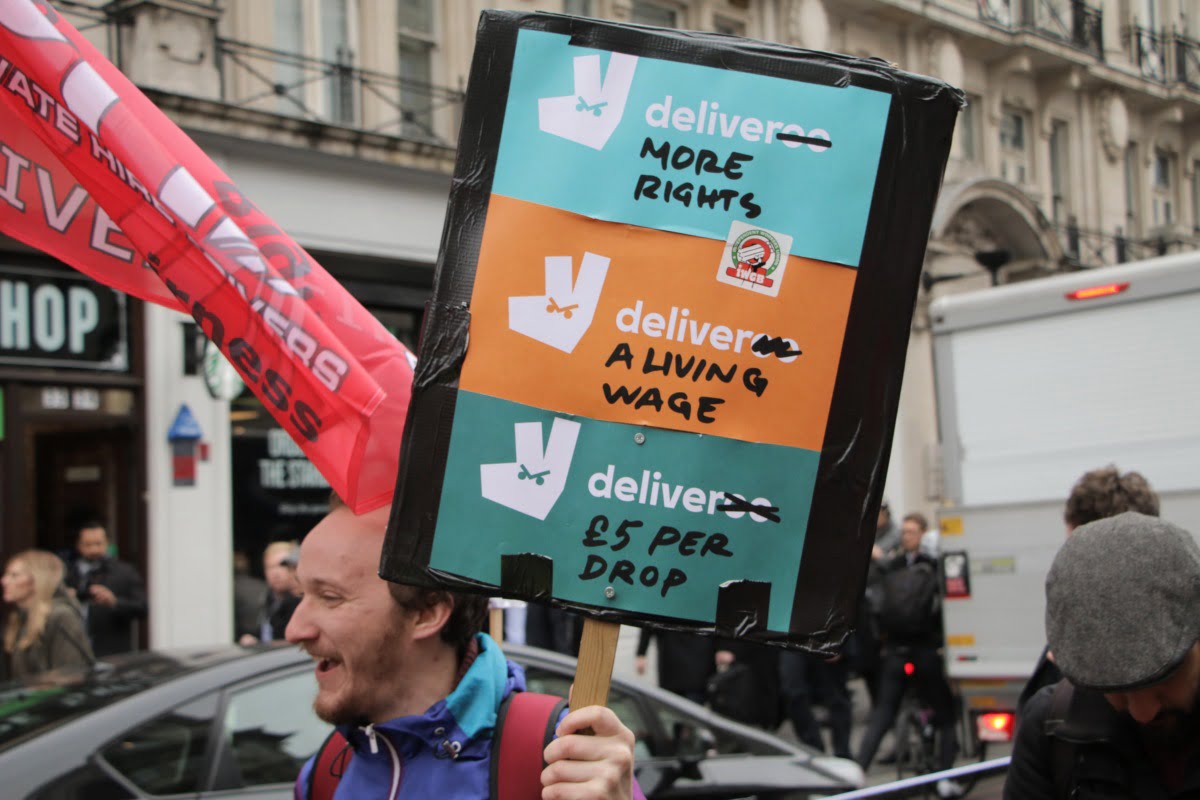As the crisis of British capitalism continues and deepens, more and more workers are being forced to find employment in the gig economy. The labour movement must organise and fight back against this exploitation.
According to a report recently published by the TUC, nearly one-in-ten working-age adults now work through gig economy platforms at least once a week. This accounts for 4.7 million workers – more than double the number seen in 2016. The majority are working on these platforms on top of other jobs, in order to make ends meet.
Those who are employed through gig platforms typically lack basic employment rights, such as sick pay, holiday pay, or a guarantee of minimum working hours and a minimum wage. Bosses are free to treat these workers as a disposable, on-demand, source of cheap labour, without the downside of having to invest in them.
But why are more and more people working under such terms? And what has driven the rise of the gig economy?
Since the crash of 2008, capitalism has been in a deep crisis. In order to maintain profitability, bosses have ruthlessly clamped down on workers’ wages and put pressure on governments to attack workers’ rights. In the UK, real wage growth from 2010 to 2020 will have been the lowest in any peacetime period since the Napoleonic era.
With wages stagnating and a scarcity of jobs that can provide a decent wage, more and more people are now forced to turn to the gig economy in order to top up their wages and keep themselves and their families afloat.
This, in turn, has fuelled the rise of insecure, low-waged work and the explosion of platforms such as Uber and Deliveroo, whose revenues are growing rapidly year on year. It is estimated that in the US in 2017, the gig economy as a whole generated $864 billion in revenues. Meanwhile, a UK report found that almost 90% of workers in the gig economy made less than £10,000 a year for their services.
Uber’s initial public offering of $8.1 billion on the stock exchange was reportedly one of the largest in history. Its co-founder Travis Kalanick now has a net worth of $5.4 billion, built on the exploitation of Uber drivers who – in the US – are still classified as freelancers rather than employees.
These gig economy practices are spreading into the wider economy as other companies attempt to adapt and compete. Rather than having stable hours, a fifth of all UK workers are now notified digitally if there’s any work for them – a key feature of the ‘just-in-time’ gig model of employment.
Companies run in the interests of private profit simply can’t provide everyone with stable employment. This is even more the case at a time when economic growth is slowing down and the system is in crisis.
Only a planned socialist system – designed in the interests and for the needs of everyone – can provide the kind of employment and living standards required for a stable existence for all. Only by organising, taking control, and fighting for socialism can the working class achieve this.






